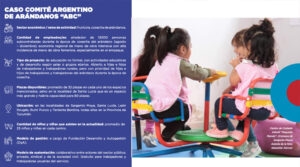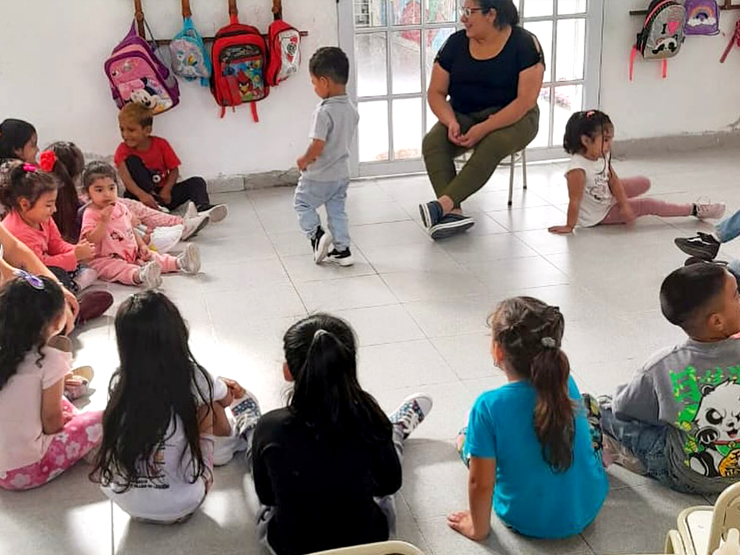UNICEF recently presented its report titled “Everyone Wins Here: Experiences of Child Care and Education Centers for Companies,” highlighting the valuable work carried out by the Argentine Blueberry Committee (ABC) and its collaborators in this area.

This study, conducted by the UNITED NATIONS CHILDREN’S FUND (UNICEF) and the Latin American Justice and Gender Team (ELA), illustrates how the Argentine blueberry sector promotes non-formal education projects for the children of rural workers, prioritizing those linked to blueberry harvesting.
Child Care Centers (CCC) operate in strategic locations in the Province of Tucumán, such as Sargento Moya, Santa Lucía, León Rougés, Rumi Punco, and Teniente Berdina. On average, each center offers 32 spaces, with Santa Lucía being the largest, accommodating up to 80 spaces.
Additionally, Youth Spots Centers (YSC) have been added for pre-adolescents and adolescents aged 10 to 17 residing in blueberry-producing communities. They emerged during the COVID-19 pandemic to provide academic support, connectivity, and assistance in completing compulsory schooling, preventing dropout rates, and offering tools and better opportunities for the children of rural workers for decent employment. However, the initial proposal for academic support quickly evolved into a space for socialization, exchange, play, and sports for teenagers. Currently, music, sports, audiovisual workshops, school exchanges, and educational outings have been added, with 2 YSC located in Sargento Moya and Santa Lucía in the province of Tucumán.
The management model is led by the NGO Desarrollo y Autogestión (DyA), and its sustainability is the result of active collaboration between the public, private, union, and civil society sectors. Furthermore, the service is free for the workers who use it.
Complete report: https://unicef.org/argentina/informes/aca-ganan-todos
Benefits:
The report highlights the benefits of CCCs from the perspective of the productive sector and companies, emphasizing how they strengthen organizations’ reputation by contributing to children’s rights and gender equality.
Carla Ginobili, Manager of the Argentine Blueberry Committee “ABC,” emphasizes: “If we truly want to position ourselves in the markets as a socially responsible sector, it’s not enough to comply with the law and not let those children into our fields, because we close the gate, but they go to work elsewhere. So, we shifted our focus not only to prevention but also to the promotion of education.”
Francisco Estrada, president of APRATUC, adds: “We have already implemented the compliance system, this year we are certifying under IRAM standards. Our products carry the seal of being free of child labor and protected adolescents, allowing us to commercially target niches that are very careful in that chain of responsibility.”
In a context where consumers value conscious and responsible consumption, these measures not only meet ethical standards but also give ABC a competitive advantage by standing out as a company committed to child protection and gender equality. ABC positions itself as a benchmark in social responsibility, demonstrating that “Everyone Wins Here” when prioritizing the well-being of the community.

